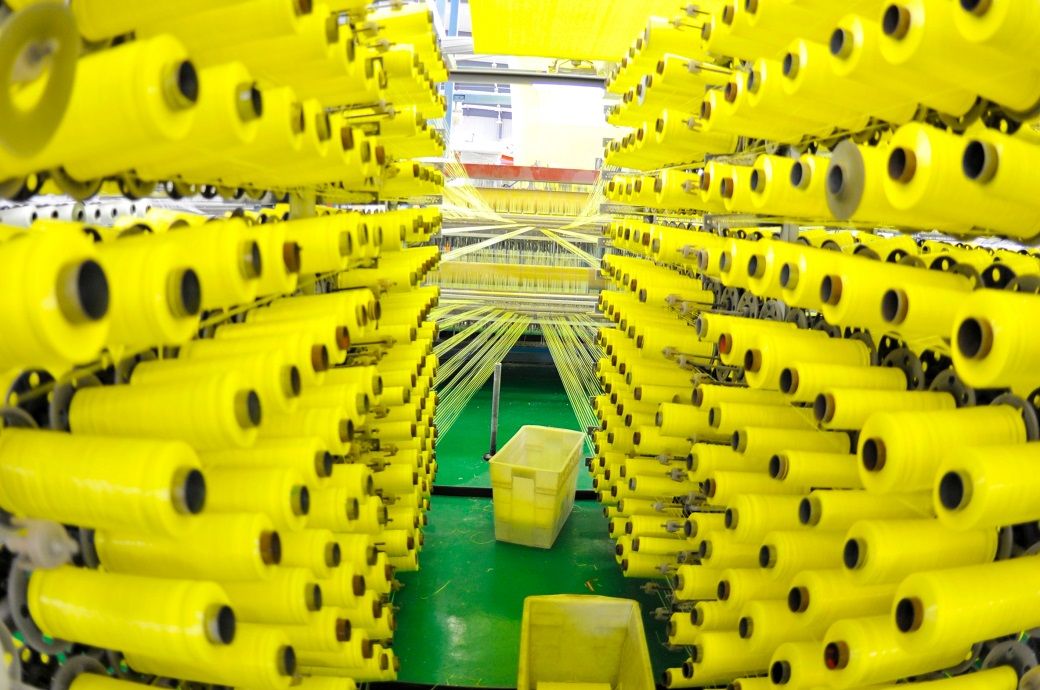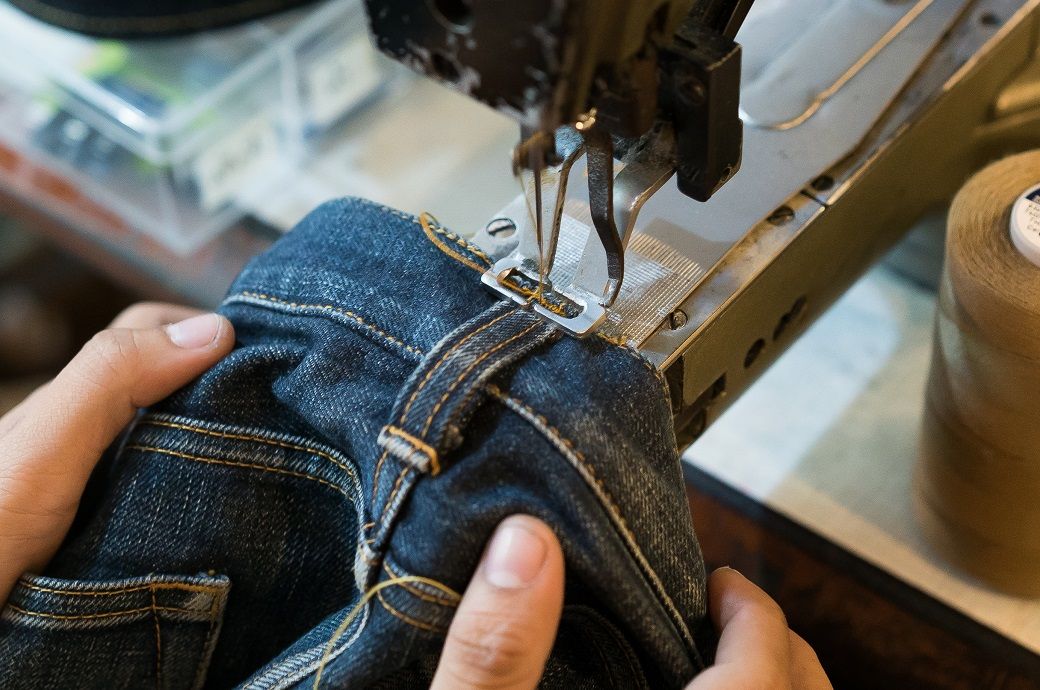Fashion
Amazon to pay $2.5 billion to settle legal case over misleading Prime subscriptions

Published
September 27, 2025
Amazon has agreed to make a one-off $2.5 billion payment to settle the U.S. court case in which the online retail giant was accused of deceiving tens of millions of consumers into subscribing to its Prime service.
Under the agreement reached between Amazon and the U.S. consumer protection authority (FTC), the Seattle-based company will pay $1.5 billion to compensate affected subscribers, while a further $1 billion will be paid to the US Treasury as a penalty.
“Today, the FTC (…) has won a monumental and unprecedented victory for the millions of Americans weary of deceptive subscriptions that seem impossible to cancel,” said FTC Commissioner Andrew N. Ferguson in a statement.
“Amazon and our executives have always respected the law, and this agreement allows us to move forward and focus on innovation to serve our customers,” the company said in a statement, which, through this agreement, avoids a conviction or any admission of the allegations.
In 2024, Amazon was the leading fashion retailer in the United States, capturing 16.2% of the U.S. apparel market. A category that, along with high-tech, is among the marketplace’s flagship offerings. In France, Amazon is the third-biggest clothing retailer by volume, across all channels, behind Vinted and Kiabi, according to the new consumer barometer from the Institut Français de la Mode.
“Dark patterns” to fool customers
This case is part of a series of recent lawsuits brought in the U.S. under both Democratic and Republican administrations to curb the unchecked dominance of several major technology companies, such as Google and Apple, after years of governmental leniency. With regard to Prime, the FTC brought this action in 2023, accusing Amazon of knowingly deploying manipulative interfaces, known as “dark patterns”, so that, at the point of purchase, consumers would also subscribe to the Prime service for $139 per year.
This paid subscription offers a number of additional services, including free, fast delivery, discounts in certain supermarkets and access to Amazon’s video platform. The company faced two main allegations: that it gained subscribers without their explicit consent, by making it very difficult to click the right buttons to refuse the subscription, and that it created a deliberately complex cancellation system, internally nicknamed “Iliad”, after Homer’s poem about the long and difficult Trojan War.
Amazon promises change
Amazon was also accused of charging its customers before disclosing the full terms and conditions of the subscription. The case began on Monday with a jury trial in federal court in Seattle, presided over by Judge John Chun. Judge Chun is also overseeing another case brought by the FTC against Amazon, this time alleging an illegal monopoly. This other case will go to trial in 2027.
Under the terms of the agreement reached on Thursday, Amazon has committed to obtaining explicit consent before any subscription or charge, and to simplifying cancellation procedures, under a protocol it must follow for ten years. Amazon has consistently disputed the allegations, saying it has improved its sign-up and cancellation processes. Last week, Judge Chun also found that Amazon had violated an online shopper protection law by collecting billing data from Prime subscribers before explaining the terms of use.
The FTC based its case in part on the ROSCA Act, which came into force in 2010 and prohibits charging for online services that are activated by default, without clearly stating the terms, without obtaining explicit customer consent, and without providing simple cancellation procedures.
(with AFP)
This article is an automatic translation.
Click here to read the original article.
Copyright © 2025 FashionNetwork.com All rights reserved.
Fashion
South Indian cotton yarn under pressure on weak demand

In the Mumbai market, cotton yarn prices remained unchanged as the loom sector slowed production. Although spinning mills are looking to raise their selling rates, they have not found sufficient demand. A Mumbai-based trader told Fibre*Fashion, “Power and auto looms are facing limited fabric buying from the garment industry. Export prospects are still unclear. Domestic demand is also insufficient to support any price rise. Mills are comfortable with falling cotton prices, while buyers remain silent on yarn purchases.”
In Mumbai, ** carded yarn of warp and weft varieties were traded at ****;*,***–*,*** (~$**.**–**.**) and ****;*,***–*,*** per * kg (~$**.**–**.**) (excluding GST), respectively. Other prices include ** combed warp at ****;***–*** (~$*.**–*.**) per kg, ** carded weft at ****;*,***–*,*** (~$**.**–**.** per *.* kg, **/** carded warp at ****;***–*** (~$*.**–*.**) per kg, **/** carded warp at ****;***–*** (~$*.**–*.**) per kg and **/** combed warp at ****;***–*** (~$*.**–*.**) per kg, according to trade sources.
Fashion
Bangladesh–US tariff deal may have limited impact on India

Bangladesh is already among the top suppliers of apparel to the US, particularly in basic knit and woven categories such as T-shirts, trousers and sweaters. A tariff advantage, even if modest, could sharpen its price competitiveness in high-volume, price-sensitive segments dominated by mass retailers.
The proposed Bangladesh–US trade understanding offering near zero-tariff access for garments has sparked debate in India’s textile sector.
While Bangladesh may gain a price edge in basic apparel, industry leaders believe the effective advantage could be limited to 2–3 per cent due to raw material dependence, capacity constraints and logistics costs.
However, Indian industry leaders argue that the net gain for Bangladesh may be restricted to around 2–3 per cent in effective competitiveness. They point to structural constraints, including Bangladesh’s heavy reliance on imported raw materials. A significant share of its fabric and yarn requirements is sourced from China and India, limiting flexibility in rules-of-origin compliance if strict value-addition conditions are attached to the deal.
Capacity limitations in spinning, weaving and man-made fibre processing are also seen as bottlenecks. While Bangladesh has built scale in garmenting, its upstream integration remains narrower than India’s diversified fibre-to-fashion base. Indian exporters emphasise that integrated supply chains offer advantages in speed, customisation and smaller batch production.
Logistics and lead times may further temper expectations. Distance from major US ports, coupled with infrastructure pressures and global shipping volatility, could offset part of the tariff benefit. In contrast, Indian suppliers have been investing in port connectivity, digital compliance systems and flexible production models to strengthen reliability.
Industry representatives also highlight that US buyers are increasingly factoring in sustainability, traceability and geopolitical risk. India’s growing adoption of renewable energy in textile clusters, compliance with global standards and broader product depth may help it retain strategic sourcing partnerships.
While some diversion of orders in basic categories cannot be ruled out, exporters believe the overall impact will be incremental rather than disruptive. The consensus view is that tariff preference alone is unlikely to override considerations of scale, compliance, diversification and long-term supply-chain resilience.
Fibre2Fashion News Desk (KUL)
Fashion
US lawmakers introduce Last Sale Valuation Act to end customs loophole

“This bill protects Louisiana workers and American businesses, ensuring loopholes don’t hold them back,” Dr Cassidy said in a press release.
US Senators Bill Cassidy and Sheldon Whitehouse have introduced the Last Sale Valuation Act to close the ‘first sale’ customs loophole that lets importers underpay duties.
The bipartisan bill would base tariffs on final sale values, strengthen US Customs enforcement and curb duty evasion.
Supporters say it will protect American manufacturers, workers and federal revenue.
If passed, the bipartisan measure would grant clearer enforcement authority to US Customs and Border Protection (CBP), streamline valuation reviews and reduce disputes over documentation, while curbing mis-invoicing and related-party pricing schemes linked to tariff evasion and illicit financial activity.
The legislation has drawn support from the American Compass, the Coalition for a Prosperous America and the Southern Shrimp Alliance.
“Cassidy’s ‘Last Sale Valuation Act’ strengthens customs valuation by assessing duties on the final transaction value of goods entering the US,” said Mark A DiPlacido, senior political economist at the American Compass, adding that closing the judicially created ‘first sale’ loophole would reduce duty evasion, simplify enforcement and increase customs revenue.
Jon Toomey, president of the Coalition for a Prosperous America, said the bill is “an important first step in restoring customs integrity,” ensuring duties are paid on the true commercial value of imported goods and helping level the playing field for American manufacturers and workers.
Fibre2Fashion News Desk (CG)
-

 Entertainment1 week ago
Entertainment1 week agoHow a factory error in China created a viral “crying horse” Lunar New Year trend
-

 Tech1 week ago
Tech1 week agoNew York Is the Latest State to Consider a Data Center Pause
-

 Business4 days ago
Business4 days agoAye Finance IPO Day 2: GMP Remains Zero; Apply Or Not? Check Price, GMP, Financials, Recommendations
-

 Tech1 week ago
Tech1 week agoNordProtect Makes ID Theft Protection a Little Easier—if You Trust That It Works
-

 Tech1 week ago
Tech1 week agoPrivate LTE/5G networks reached 6,500 deployments in 2025 | Computer Weekly
-

 Fashion4 days ago
Fashion4 days agoComment: Tariffs, capacity and timing reshape sourcing decisions
-

 Business1 week ago
Business1 week agoStock market today: Here are the top gainers and losers on NSE, BSE on February 6 – check list – The Times of India
-

 Business1 week ago
Business1 week agoMandelson’s lobbying firm cuts all ties with disgraced peer amid Epstein fallout

















